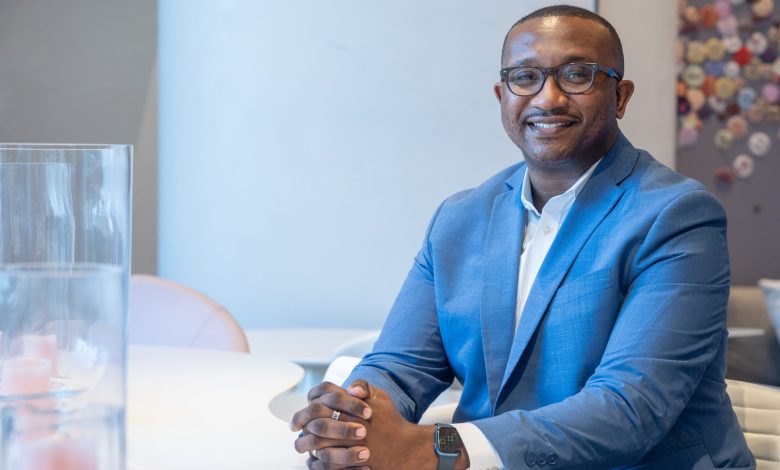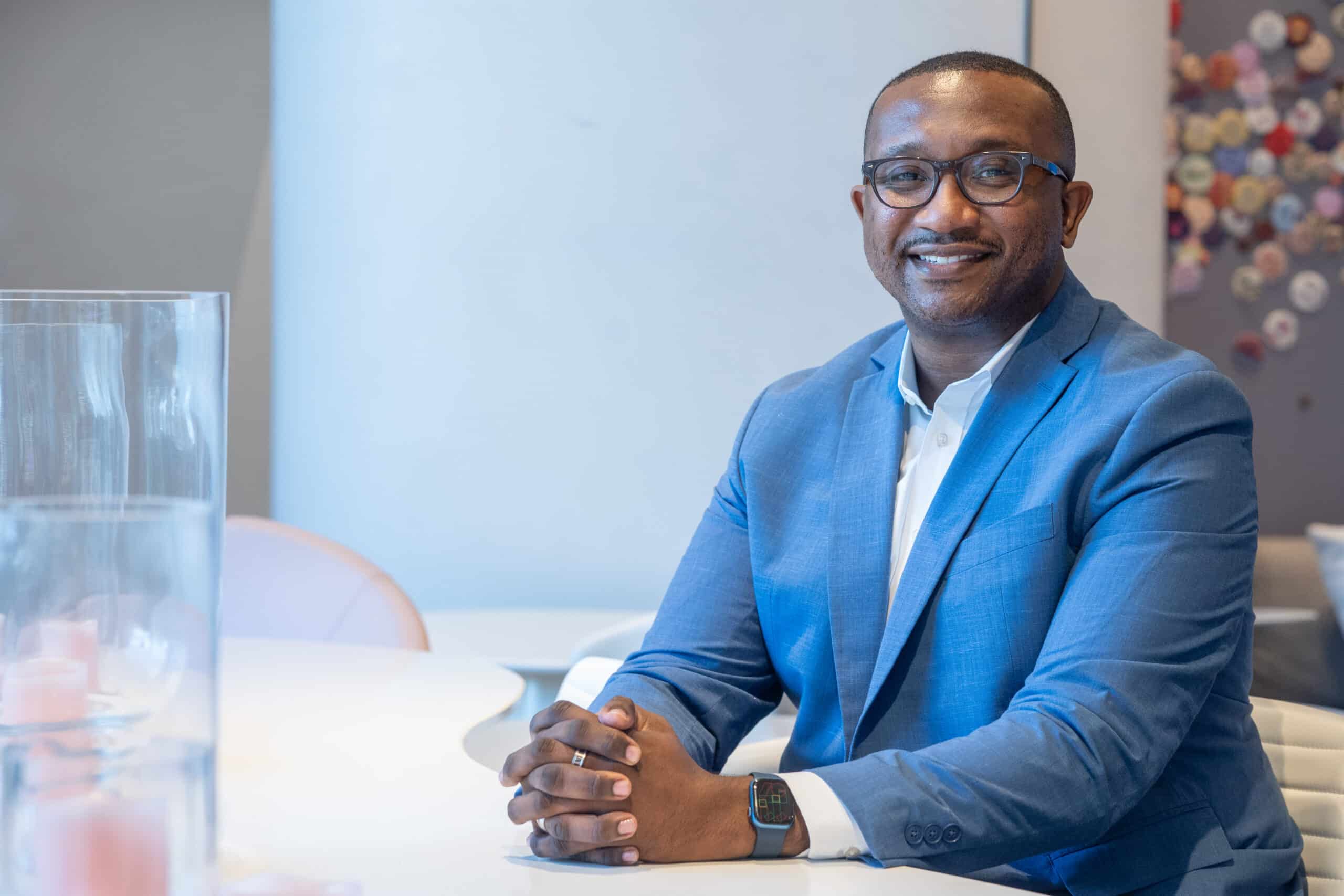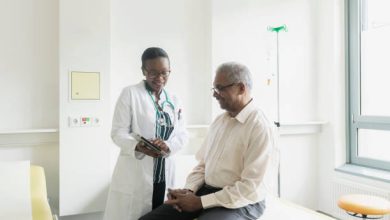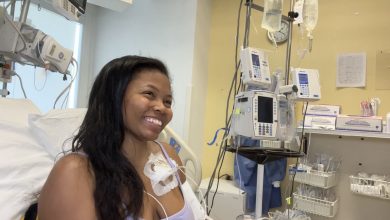10 Years of Misdiagnosis: What I Wish I Knew Sooner


Living with a chronic illness like Inflammatory Bowel Disease (IBD) presents challenges that often go far beyond the physical symptoms. Cedric’s story of navigating a decade-long journey to an accurate diagnosis highlights not only the resilience required but also the systemic gaps in healthcare that need addressing. As an advocate for both the Black and LGBTQ+ communities, Cedric uses his experience to bring awareness to the importance of inclusive and patient-centered healthcare.
A Decade of Uncertainty
Cedric’s IBD journey began during his first year of college, when he experienced severe gastrointestinal symptoms that led to hospitalization.
“Before college, I had never experienced any severe hospitalizations or major gastrointestinal issues. Yes, I had frequent bathroom visits, but nothing that seemed too alarming,” Cedric tells BlackDoctor.org. “However, during my first year, I got really sick and had to be hospitalized.”
Cedric’s diagnosis process was fraught with assumptions rather than solutions.
“At the time, my symptoms were dismissed as a result of a poor diet and excessive alcohol consumption. I remember being questioned by ER personnel about drug use, as there were a lot of assumptions made about an 18-year-old college student. Unfortunately, these assumptions led to a lack of thorough medical investigation,” Cedric says.
Instead, they stabilized Cedric and discharged him with a basic treatment plan—some dietary recommendations and a short course of steroids. “There was no follow-up or real concern about what had caused my symptoms in the first place,” Cedric adds.
The following year, Cedric experienced a similar episode while studying abroad.
“I was hospitalized again, this time in London. The same pattern repeated itself—I was given IV fluids to stabilize me and was discharged without a proper diagnosis. This happened again when I was studying in Malta,” Cedric says.
It wasn’t until nearly a decade after his symptoms first appeared, that Cedric was finally provided clarity: Crohn’s disease.
“One of my supervisors, who was a doctor, noticed a pattern and urged me to take my health seriously. She told me, ‘This isn’t normal. You need to figure out what’s wrong.’ When I returned to the U.S. in early 2017, I started searching for doctors using online reviews and patient recommendations. I finally found a doctor in Fairfax County, Virginia, who took my concerns seriously,” Cedric notes.
RELATED: It’s Time to Step Up Our Response to Rising IBD Rates in Black Communities
The Impact of Late Diagnosis
Delayed diagnosis took a toll on Cedric’s physical health, relationships, and mental well-being. Recurrent hospitalizations, misunderstandings, and a lack of proper care left him struggling alone.
“This journey has been incredibly challenging—not just physically, but mentally and emotionally. For years, I struggled with relationships, friendships, and my own mental health. It took time to adjust, to find a healthcare team I trusted, and to feel psychologically safe in discussing my condition,” Cedric says.
However, his determination to find answers eventually led him to a multidisciplinary care team that not only treated his condition but also helped him understand how to manage it.
“I was placed on an advanced treatment plan immediately, which I appreciated. Instead of a slow, gradual approach, they started me on the most effective therapy right away,” Cedric shares.
Now in medical remission, Cedric reflects on the importance of self-advocacy in navigating healthcare.
“Being diagnosed in 2018 and working in health policy—particularly in the HIV space—has shown me the importance of patient advocacy. As a Black, openly gay man from the South, I’ve realized how critical it is to share my story. Crohn’s disease impacts every aspect of a person’s life, not just their digestive system,” Cedric adds.
RELATED: 8 Diseases That Can Occur In Black People with Crohn’s Disease
Advocacy for Marginalized Communities
Cedric’s experience has shaped his perspective on healthcare disparities. He underscores the importance of culturally competent care and the challenges faced by LGBTQ+ patients in rural areas.
“There are significant gaps in healthcare for LGBTQ+ individuals, especially in rural areas or less progressive regions. For example, I live in Covington, Georgia, about an hour outside Atlanta. There are very few gastroenterologists here, and even fewer who have LGBTQ+ competency training,” Cedric notes. “Many GI doctors aren’t equipped to understand how Crohn’s disease or other chronic illnesses impact LGBTQ+ patients beyond the medical diagnosis. This includes social, relational, and even sexual health concerns. If a doctor is not comfortable addressing these issues, they should at least have resources or referrals to someone who is.”
In the Black community, Cedric highlights the need for increased education about IBD and its related conditions.
“For the Black community, particularly in the South, there are cultural barriers and healthcare disparities that make it harder to access quality care. We also need more awareness about the connections between IBD and conditions like colorectal cancer. Preventative screenings, early detection, and patient education need to be prioritized,” he adds.
RELATED: The ONE Crohn’s Symptom Most Likely to Hit Black People the Hardest
Advice for Newly Diagnosed Patients
For those newly diagnosed with IBD, Cedric offers practical advice:
Advocate for Yourself
Don’t hesitate to ask questions or demand clarity from your doctors. If you’re unsure about something, speak up.
“It’s hard because, so often, we don’t question our doctors. I think back to my own journey—these doctors have the privilege of education, knowledge, certifications, and licensure, and at the time, I didn’t think to question them. Back then, at 18, I was taught that you just listen to the doctor. That’s a learned behavior ingrained in us from childhood all the way into adulthood—until a medical issue arises, like in my case. Then you start unlearning that behavior and relearning how to advocate for yourself in a hospital or medical setting,” Cedric says.
Find the Right Doctor
Research and seek out healthcare providers who respect your concerns and prioritize patient-centered care.
Leverage Resources
Many healthcare systems and insurance plans offer patient advocates who can help navigate the complexities of treatment and care.
“I know the internet can be overwhelming, filled with misinformation and fake news. However, there are strong advocacy organizations that provide reliable information and support. For example, groups like Color of Crohn’s & Chronic Illness (COCCI) and IBD Moms were incredibly helpful to me—even though I’m not a mom, they welcomed me, listened to me, and supported me through my diagnosis,” Cedric adds.
Build a Support System
Connect with communities like the IBD Social Circle and other advocacy groups for guidance and emotional support.
Document Your Symptoms
Another important tip is to document everything. During those early appointments—especially right after diagnosis—you might be overwhelmed with information.
“For newly diagnosed IBD patients, my biggest piece of advice is: document, document, document. Write down the questions you have and compare them to your visit notes. If something doesn’t make sense, bring it up at your next appointment. And if you can’t get answers from your GI doctor directly, speak to the nurse practitioner or nurse—they are often more intuitive with patients and can advocate for you. They will also relay your concerns to the GI doctor on your behalf,” Cedric shares.
The Path Forward
Today, Cedric channels his experience into advocacy, working to bridge gaps in healthcare for marginalized communities. Through storytelling and education, he hopes to inspire systemic changes that prioritize inclusivity and empathy.
“I want to help others understand that IBD doesn’t just affect your stomach—it impacts your entire life,” Cedric says. “By sharing my journey, I hope to empower others to advocate for themselves and push for the healthcare they deserve.”




